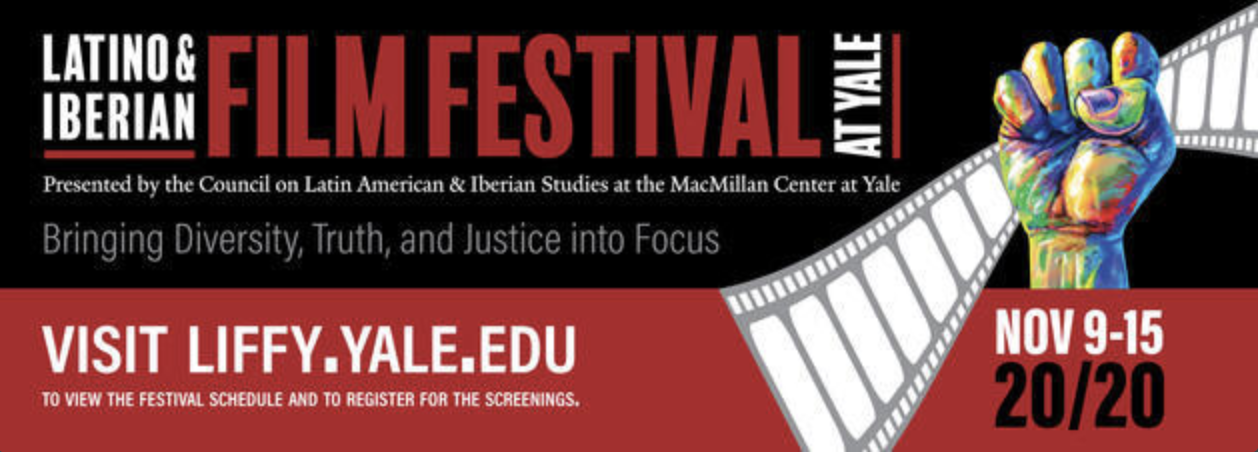
Courtesy of Margherita Tortora
The annual Latino & Iberian Film Festival at Yale, or LIFFY, will celebrate its 11th anniversary in a new virtual format. The festival will run from Nov. 9 through Nov. 15, thematically highlighting notions of “diversity, truth and justice.”
LIFFY’s goal has always been to promote cultural diversity and awareness. With the support of the MacMillan Center Council on Latin American and Iberian Studies at Yale, the festival achieves this through presenting movies by filmmakers from Latin America and the Iberian Peninsula.
“This year especially, our team felt an urgent need to call attention to the problems of intolerance, divisiveness, and disinformation,” said Margherita Tortora, founder of LIFFY at Yale. “We want our filmmakers to get a platform to speak their truths, to show different stories and to really put the focus on justice and diversity.”
The festival’s origins can be traced back to a film series conducted by Tortora in the 1990s. The series then took the form of a collaboration with the New England Festival of Ibero American Cinema in 2010. Five years later, it became the Latino and Iberian Film Festival at Yale.
This year, the festival includes screenings of around 60 feature and documentary films from 15 countries. These selections have been made from more than 400 submissions.
Several films this year touch on the subjects of gender roles and cultural stereotyping. Tortora said the aim of the festival is to “open people’s eyes to the human side of life” and rid viewers of “prejudicial concepts” in their vocabulary and minds.
Luis Guevara-Flores ’24, a student in Tortora’s “Spanish in Film” class this semester, emphasized the festival’s relevance.
“The films selected for LIFFY present a diverse set of narratives and characters,” Guevara-Flores said. “For example, a few of them focus on Indigenous cultures, which is something that isn’t discussed enough today but remains extremely important for our cultural education and appreciation.”
Tortora said featured films include “Historias de ajedrez” by Emmanuel Martín Hernández, a minimalist take on everyday life in Cuba that is “free from propaganda,” as well as “Maria Luiza” by Marcelo Díaz, a documentary about the first transgender woman to serve in the Brazilian Air Force.
At the festival, a jury comprising a professional filmmaker, a producer and a film critic will award honorary prizes for three main categories — best feature fiction film, best short film and best feature-length documentary. Experts can also list honorable mentions for additional categories, such as best actor and best script. This year, the jury includes Víctor Gaviria from Colombia, Bea Gallardo from Guatemala and Cynthia Sabat from Argentina.
“Since we went virtual, I actually had more options in terms of whom I could invite as jurors, as well as who could watch the festival,” Tortora said. “Now even more than ever, LIFFY goes international and reaches people worldwide.”
In a regular year, the festival includes film screenings, panel discussions, workshops and Q&A sessions at Luce Hall and the Whitney Humanities Center. But this year, the festival’s virtual format presents new opportunities for involvement.
Feature films will be streamed to the audience via Zoom webinar, while short films will be available for a 24-hour period on a private YouTube channel. All films will be immediately erased afterward to avoid copyright concerns.
In addition to movie screenings, LIFFY will also feature workshops and Zoom conversations with filmmakers, covering topics such as Latin American cinema and movie production during a pandemic.
Ellie Burke ’24, another student in Tortora’s “Spanish in Film” class, said Tortora took advantage of digital platforms to bring filmmakers together and elevate the festival to “a whole new level.”
According to Tortora, LIFFY can help people “regain their lost focus and a 20/20 vision of the truth.” By bringing the movies by Latin American and Iberian filmmakers to a wider public, she hopes to counteract “poisonous misconceptions and prejudices against Latinos spread by the government and the media.”
All LIFFY events are free and open to the public, and viewers can register for blocks of films on the LIFFY website. The films will be presented in their original languages with English subtitles.
Tania Tsunik | tania.tsunik@yale.edu







